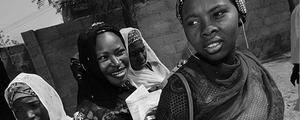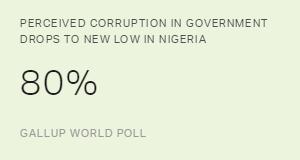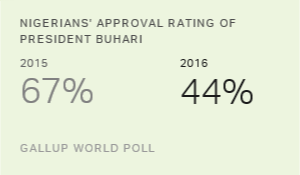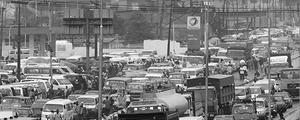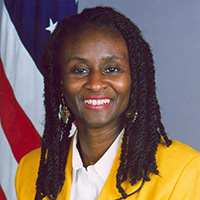
A Conversation With Robin R. Sanders
CEO-FEEEDS, former U.S. ambassador to the Republic of Congo, Republic of Nigeria, and U.S. Permanent Representative to ECOWAS
What has changed in Nigeria since the last election?
Over the course of the past two elections, particularly in 2015, Nigeria's Independent National Electoral Commission (INEC) has greatly improved its ability to execute and administer elections, including preparations, cleaning up election rolls, improving voter registration and education processes (especially with young voters), and establishing a fixed timetable for both the presidential and governors' elections.
Equally important, Nigerian citizens are demanding and expecting their leaders to respect transparency and hold free, fair and peaceful elections because they know it can be done in their nation, and they expect even more so for the 2019 elections.
Furthermore, civil society, as a stakeholder, is more active in its election watchdog role, adding its voice to ensure transparency in every step of the process (for example, registration, holding Election Day parallel vote tabulation, and calling for a peaceful election and post-election period).
Then there is the press. Nigeria's media have always been dynamic. But what one sees over two decades is a sophistication in established media outlets. They too contribute to the calls for improved democratic processes. This doesn't mean there isn't sensationalism in the press (as there is elsewhere), but well-respected, established media outlets have played a positive Fourth Estate role in the last decade and will do so this election.
What are Nigeria's biggest challenges or opportunities this year? The next decade?
Nigeria is reportedly a country of more than 190 million people and growing, with most of its population younger than age 35. That being said, I see Nigeria's large, young population as an opportunity for the nation's future, but that opportunity must be taken advantage of and harnessed. Meaning, that job creation -- note I am not saying the word "employment," but job creation -- is going to be key.
What is the difference you might ask between the two -- job creation and employment? Well, think of one as digital (job creation) and one as analog (traditional 9-to-5 employment). Job creation includes traditional formal jobs, but more so developing entrepreneurs and small business, referred to in the region as small and medium-size enterprises or SMEs, with a specific focus on women, young girls and skills training.
I spent the last two years researching the impact and potential of SMEs on the region's growth and development in my book, The Rise of Africa's Small and Medium Size Enterprises. The data there, including some from Gallup on how people feel about starting a business in their country, show that with job creation through SMEs/entrepreneurs comes an emphasis on training, technology and the use of new educational platforms (for example, online).
The Africa region will have the largest working age population in the world around the year 2035, according to the IMF. A large part of that population certainly will be in Nigeria. But the region has hard development issues, as does Nigeria. It will be important for the region to see certain elements as part of the same four-legged stool for growth, stability, democracy and development to thrive, and to provide opportunities for its young people.
For Nigeria, these elements include improving health, education and infrastructure; addressing poverty and food insecurity; further combating corruption; and improving and managing security. The latter point includes Boko Haram as well as Sahel climate change issues, which exacerbate traditional pastoral and herder tensions in the central regions, producing more conflict, which can and has devolved into political/ethnic tensions.
These are challenges for Nigeria to resolve to have a sustainable, enabling environment for development and to provide opportunities for its young people. Some security progress has been made in the Northeast over the past two years, but pockets of instability remain, young girls are still missing, and many internally displaced persons (IDPs), remain displaced -- although some IDP-focused projects exist, and INEC has done a lot to register and establish IDP polling sites, and these are good things.
On corruption, Nigeria has made important inroads in addressing illicit enrichment, demanding more transparency in government accounts, reporting of personal assets and money transfers, and working with foreign governments to return stolen monies to Nigeria's treasury -- with some success.
Clearly more can be done to reduce corruption. But I like to remind people that this is not the whole story of Nigeria, and I get dismayed when the country's story gets reduced to this single (albeit important) issue, or just to the challenges.
This is a vibrant nation, with a vibrant, growing, creative, business and entrepreneurial population. These are the good news stories. Furthermore, its democracy and election processes have improved, and all of us who are friends of Nigeria want to see continued progress in these areas, especially during the upcoming 2019 elections, which we hope are peaceful, and beyond.
The views of those interviewed are expressly their own.
